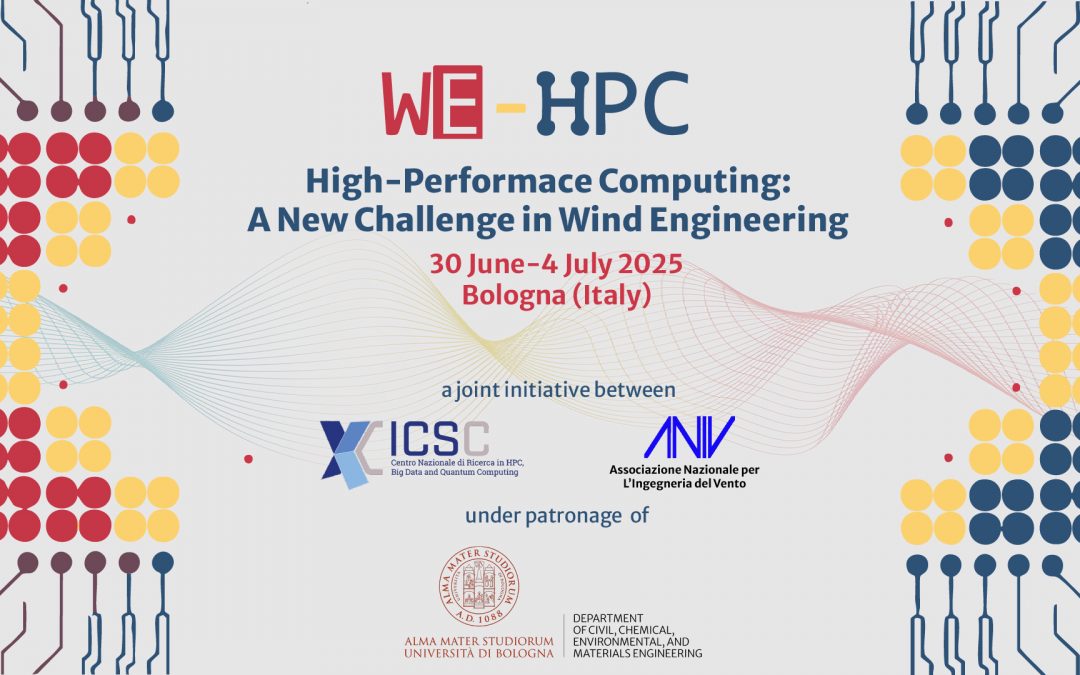On Monday, June 30, the Faculty of Engineering at the University of Bologna will host the first edition of the course “High-Performance Computing: A New Challenge in Wind Engineering” (WE-HPC), taking place from Monday, June 30 to Friday, July 4.
The school, organized by the ICSC – Italian Research Center on High Performance Computing, Big Data and Quantum Computing, in collaboration with the Italian Association for Wind Engineering (ANIV) and under the patronage of the Department of Civil, Chemical, Environmental and Materials Engineering (DICAM) at the University of Bologna, is primarily aimed at PhD students from any engineering or scientific discipline, as well as professionals, and will host 20 participants.
The increasing availability of computing power is accelerating the adoption of numerical simulations in wind engineering, a field traditionally reliant on wind tunnel testing carried out in specialized centers. However, the application of Computational Fluid Dynamics (CFD) outside these centers requires a deep understanding of the reliability, applicability, and challenges associated with such analyses.
The WE-HPC course aims to provide essential theoretical and practical tools for the effective use of numerical simulations in bluff body aerodynamics and wind engineering, with a particular focus on high-performance computing (HPC) infrastructures.
“High-Performance Computing has proven to be an enabling technology in many engineering disciplines. Yet, Wind Engineering still relies heavily on physical testing facilities.” Said Luca Patruno, Professor at the University of Bologna and Scientific Director of WE-HPC. “This is partly justified, but also reflects past misuse of numerical simulations, often due to a lack of proper awareness and training. The course aims to address this gap.”


